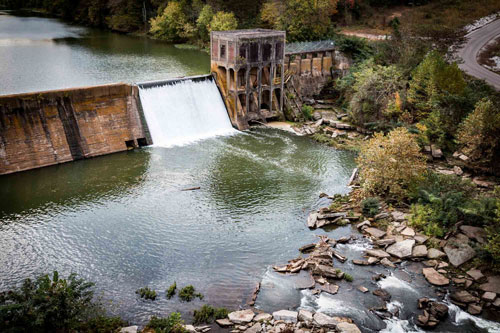Please see an editorial concerning an environmental group’s intent to file a civil lawsuit against Lawrenceburg Utility Systems (LUS) that I posted to Facebook on Saturday:

This past week a Facebook post has been shared by many regarding an environmental group’s intent to file a civil lawsuit against Lawrenceburg Utility Systems (LUS) over “millions of gallons of raw sewage they claim were dumped into Shoal Creek.” The group claims that LUS has 128 violations within the past five years with more than 17,690,589 gallons of untreated sewage going into the creek.
Raw sewage in a creek sounds terrible as it should. However, the claim that has been made could be misleading. I have not reviewed LUS’s last five years of violations but have reviewed some of the violations reported since 2017. It needs to be mentioned that LUS has followed the correct protocols and guidelines as outlined in their National Pollutant Discharge Elimination System (NPDES) Permit issued by the Tennessee Department of Environment and Conservation (TDEC).
LUS is required to submit a notice of non-compliance within 24 hours of becoming aware of any event “which could constitute a threat to human health or the environment.” This must be followed up with a written report within 5 days. The environmental group obtained their claim info from these reports that LUS has submitted as required.
Now, let’s talk about overflows. An overflow is defined on the reporting sheet as “makes it to a stream.” Someone who is unfamiliar with a sewage system could easily surmise that this would mean household waste water and excrement is flowing directly into our streams without being treated when an overflow happens - 17.6 million gallons into Shoal Creek.
My review of the submitted reports shows that most of the overflows were due to excessive rainfall including flash flooding. Virtually all sewer systems battle inflow and infiltration (I and I). This happens as the system ages and the ground naturally shifts causing cracks, deteriorated pipe joints, and deteriorated manholes. When heavy rainfall and flash flooding occurs the system can become overwhelmed due to I and I leading to an overflow. During these times the majority of the sewage overflow is not actually sewage at all but is rainwater. This makes up a large amount of the 17.6 million gallons of sewage overflow
The other times overflows are reported outside of heavy rainfall/flash flooding are generally due to equipment issues/failure. These are generally quickly identified and repaired with a low amount of overflow. We all know anything mechanical will sooner or later have some type of failure.
The permit also states if the system has 5 or more overflows within a year, a moratorium is issued against any new or additional flows being added upstream (no additional sewer connections may be added). This can only be lifted once TDEC approves the plans to repair/improve the system, the work is underway, and additional connections will not cause future overflow issues. Moratoriums may be viewed online at TDEC’s website.
LUS runs a responsible system and reports as required to TDEC. However, due to their reports and following regulations, they are getting sued. Many other systems have been sued by environmental groups as well over similar issues. There are many issues with this including:
Litigation costs money whether the case makes it to court or it is settled outside of court. This is money that was paid to the utility system by us - the systems’ users. This is money that could go to continually repairing and improving the system.
I have learned this has also caused some systems to not report small overflows. The fewer number of overflows and smaller amount of sewage overflow reported makes the system less likely to be targeted for such a lawsuit as this. This is wrong for any system to do and I know LUS will not do this.
Environmental issues such as sewage polluting our streams and creeks is something I take seriously as does the LUS staff and the Loretto Utility staff. In fact, the City of Loretto has spent a large amount of time and money to improve our sewer system the last few years and will continue to do so. However, I also believe that questionable litigation against utility systems needs to be looked at. This costs you and I money, can keep utility systems from performing the needed upgrades and repairs, and, unfortunately, could lead to actual environmental issues. I have asked State Senator Joey Hensley, State Representative Clay Doggett, and Representative David Byrd to look at the issue of frivolous lawsuits.
Lastly, I want to thank our utility system employees (water, sewer, gas, and power) for all they do. We have the best at the City of Loretto, Tennessee and Lawrenceburg Utility Systems. Our environmental partners at TDEC also do a wonderful job working with us while ensuring we are doing what we are required to do to keep the environment safe.
Thanks,
Jesse E. Turner
Mayor
City of Loretto

